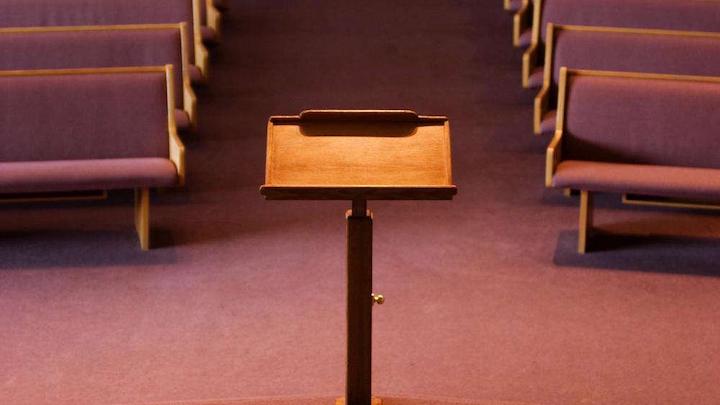I recently conversed with a young lady about why she left Christianity. More often than not, when I evangelize to someone in America, they have some sort of Christian background. This benefits me because the door slams open to discuss the gospel. And I asked her a question that I ask every false convert: How do you know that the “god” that you reject is the God of Christianity? I word this question differently depending on who I’m talking to. But the basic idea is that I want them to examine, via the Scriptures, whether their salvation “experience” was genuine. And if they are rejecting the true gospel or some false one.
This young lady’s confession for leaving Christianity was more honest than most are willing to admit out loud. After I asked the question above, she told me that she was once very active in the church. When she was “saved,” she read the Bible, was on the worship team, and was more zealous than most in her family and group. Then one day, she got really busy, had two jobs, and just participated less and less in Christian activities. And little by little, it all just stopped.
Nothing Changed
She admitted to me that it wasn’t because she read anything contrary to Christianity. It wasn’t like she had a bad experience, and then ended up rejecting God in the end. For her, it was the fact that nothing in her life changed after she stopped “doing christian things.” In other words, after asking for further clarification, since she didn’t feel any different after not going to church for a while, she figured that God wasn’t real. In essence, her life “without God” wasn’t any different than her life when she was “with God.” And because her transition out of Christianity was so smooth, almost seamless, and without any distinction, she was convinced that there wasn’t anything different about Jesus (other than those “extra” activities). She thought that it was just all in her head.
I told her that I appreciated her honesty, and began to explain from the Scriptures her experience. Because there was no real genuine regeneration, it was inevitable that the transition was going to be made. Whether it is caused by temptation, tribulation, or persecution, she was going to leave the faith at some point. The difference for her was that it was life’s daily “distractions” that caused her to leave. But it was this common confession that made me think of not only my own false conversions, but the other’s whom I’ve spoken to about this very thing.
But whether we realize it or not, there are many within Western Christianity like this young lady. If you took them out of the church, and distract them, they would soon discover that there really wasn’t much of a spiritual difference in their life. The only difference is a few behavior modifications. And so it will be for the many who call themselves Christians who are in quarantine.
This young lady is not just a typical demonstration of false conversion in America, but a warning. In this time of quarantine for COVID-19, many false converts in our churches will soon discover how indifferent they are to be away from other Christians. After a while, it will be easier and easier to not be a part of the local assembly. They’ll realize that they don’t really long for the fellowship of the Saints. Nor do they seek comfort and communion with God through his word when they’re not provoked by others. And many will choose not to return to the community of believers when this is all said and done, because, well, their lives were relatively unaffected. But, as I think about them, I also think about how Christians, if we are not careful, we may fall into a similar, but different trap.
Apathy
Apathy, like carbon monoxide, is a silent killer. It gives no warning, but you do develop new habits. It’s not that you hate God. You just don’t spend as much time with him as you used to. It isn’t that you’re not interested in learning more about His word. It’s just easier to sit back and watch a movie or binge-watch our favorite show to pass the time. It isn’t that we don’t desire to seek God’s will during this difficult time. It’s just hard to care when we’re so bored, distracted by finances, emotionally drained because of relational issues at home, or are restricted from our usual activities. And since we no longer have the brethren to gather with during the week, we may begin to feel spiritually lethargic or attempt to run the race set before us alone. Sure, we have video chat. But even that loses its luster.
Therefore, dear Saint, I pray that we would not lose heart! (Gal. 6:9) Do not fall prey to indifference. Take the time to call another saint in your church. Call your pastor, lost friend, or family member. Enjoy, and take full advantage of, the extra time you’ve been given with your family, even if this isn’t the best of circumstances. Commune with God while going for a while at a park, or some other public place outside of the home. Pass out a gospel tract to those working in essential businesses, or in another area where people are going. Persevere through the “un-ideal” services with your local assembly. Purposefully call that difficult person and ask them how you can help or pray for them. Send money electronically to your pastor or to those who need it. But at all costs, resist apathy by zealously choosing to remain active in your local area and maintaining communication within the local assembly!
And if you’re a professing believer, and the recent shut down of “christian activities” and common gatherings hasn’t impacted much of your life, then there are two questions you must ask yourself: 1) Were you really connected to your local congregation? 2) Are you truly a believer?
-Until we go home





Thanks George, while reading this I thought of this verse.’But exhort one another every day, as long as it is called “today,” that none of you may be hardened by the deceitfulness of sin.
That is certainly applicable. Thank you for sharing!